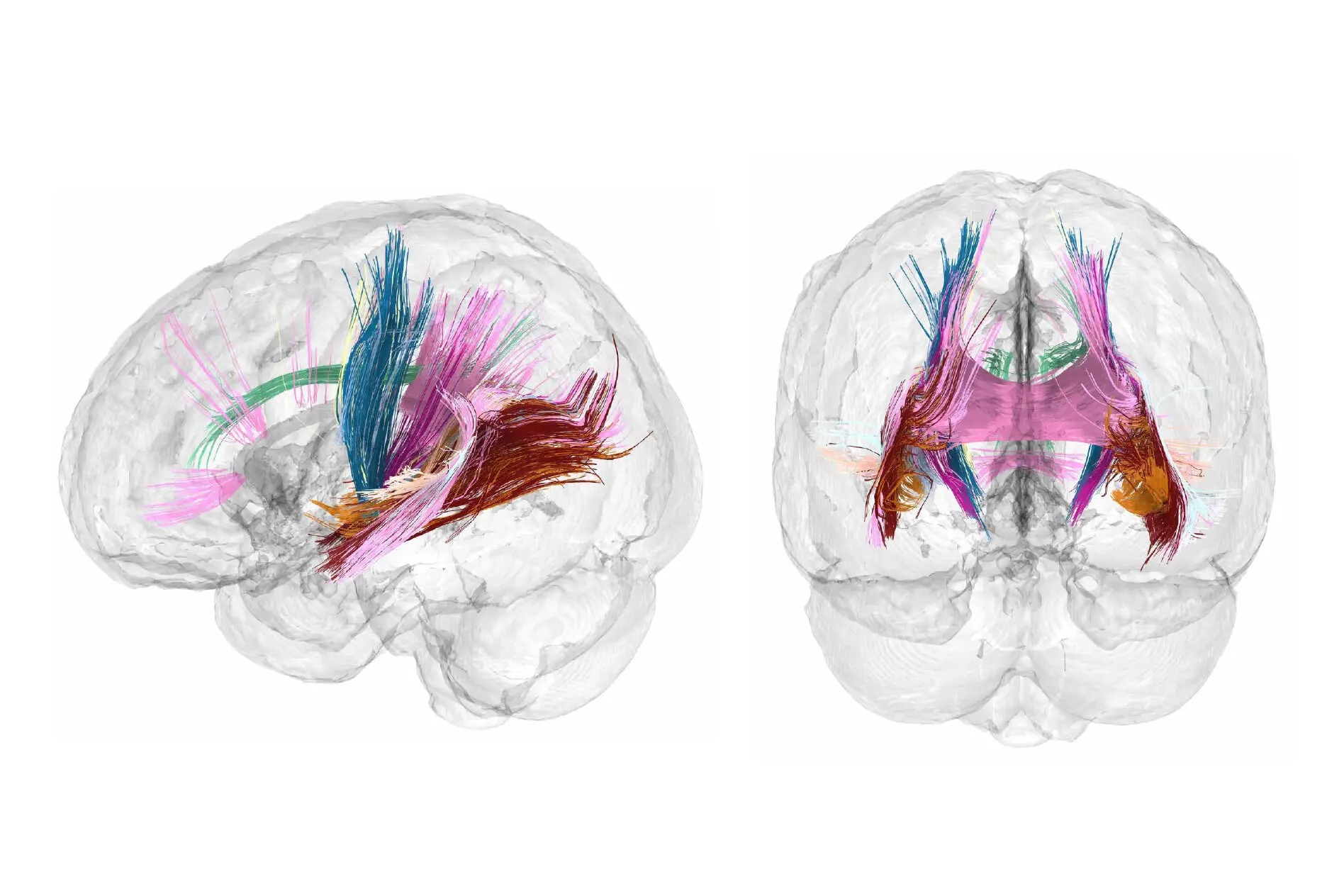Published on
updated on
Reading 3 min.
During pregnancy, the mother-to-be’s body changes. But not only that. A new study proves that brain changes also take place during these very special nine months in a woman’s life.
Pregnancy is a special time for a woman’s body. Many changes take place in her body, in order to welcome life into her womb. But physical changes are not the only ones. The pregnant woman’s brain also undergoes changes during these nine months: some are ephemeral and others more lasting.
A map made by scientists… on a scientist
The study — the first of its kind — focused on a single subject: neuroscientist and co-author Elizabeth Chrastil. Now 43, she became the mother of a healthy baby boy almost five years ago through in vitro fertilization. She was 38 at the time of the study.
The young woman volunteered for repeat scans, which began three weeks before conception and continued throughout the nine months of pregnancy and up to two years after giving birth. In detail, she underwent 26 brain MRIs with four pre-pregnancy scans, 15 scans during pregnancy and seven during the two years following the birth of her son in 2020.
Clues revealed about pregnancy-induced brain changes
Previous studies have already shown that certain brain networks change before and after pregnancy, particularly in relation to the increase in hormone levels during this particular period, such as estrogen.
This study, published in the journal Nature neuroscienceillustrates these changes, using different MRI scans. For example, at the ninth week of gestation, 80% of the 400 brain areas analyzed showed a decrease in the volume of gray matter – the wrinkled area that makes up the outermost layer of the brain – and their cortical thickness. A change observed throughout pregnancy, with an average decrease estimated at 4%.
The volume loss persisted two years after delivery, suggesting that pregnancy hormones cause “permanent etchings in the brain,” the authors said.
The scientists also found a 10% increase in the microstructural integrity of white matter, located deeper in the brain. White matter is a measure of the health and quality of connections between brain regions.
This increase peaks at the end of the second trimester of pregnancy and the beginning of the third trimester, then returns during the postpartum period to pre-pregnancy levels. Finally, the authors note that these two changes in brain matter coincided with the increase in levels of two hormones: estradiol and progesterone.

Changes that are not noticed by the scientist
While some women feel “dumber” or “different” during pregnancy, that wasn’t the case for Elizabeth Chrastil. She said that during her pregnancy, she didn’t notice any symptoms or effects related to these brain changes. Even though her brain showed profound differences.
To be sure of the pregnancy link, the researchers evaluated the brain imaging of eight non-pregnant people, including two men. Their brains did not show such changes.While subsequent brain scans of several pregnant women echoed the mapping from Dr. Chrastil’s brain,” explains the study’s lead author, Emily Jacobs, a neuroscientist at the University of California, Santa Barbara.
The researchers now hope that these results can help in the management of certain pathologies in women during or after pregnancy, such as pre-eclampsia or postpartum depression.

